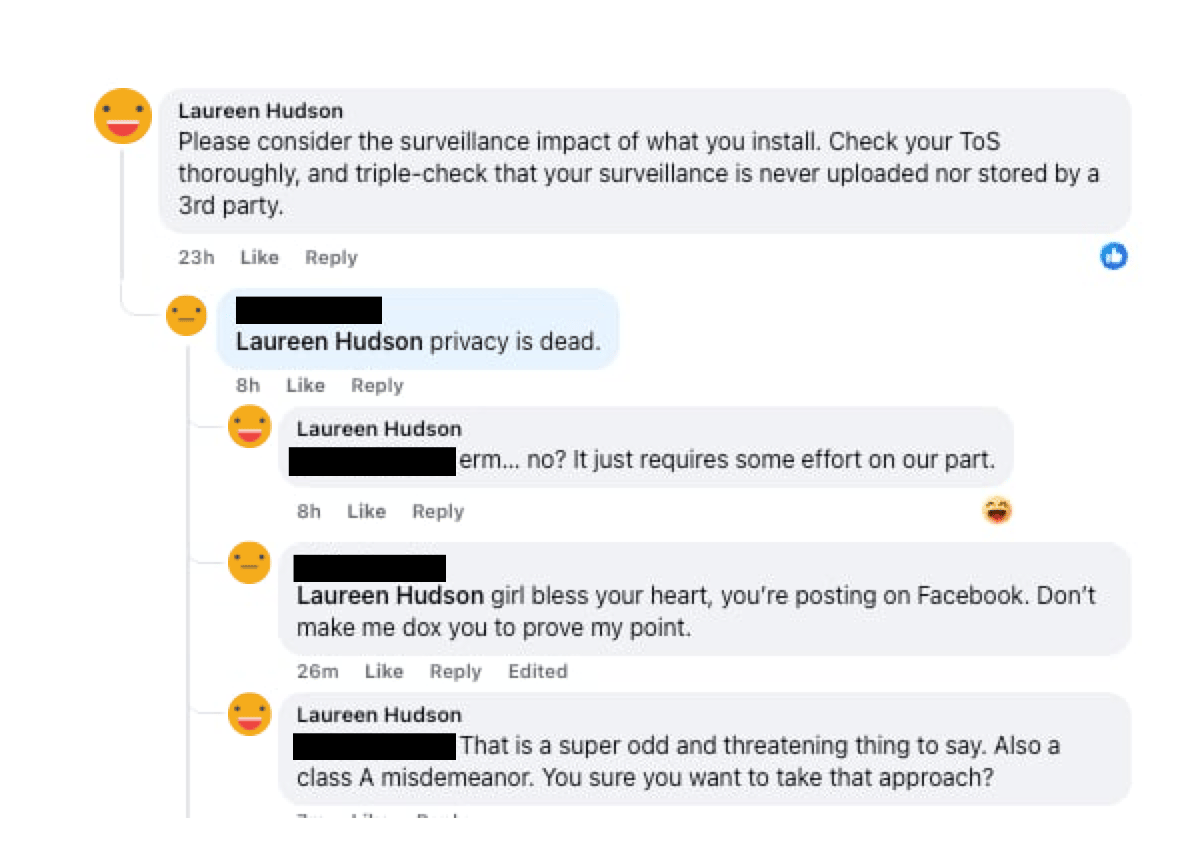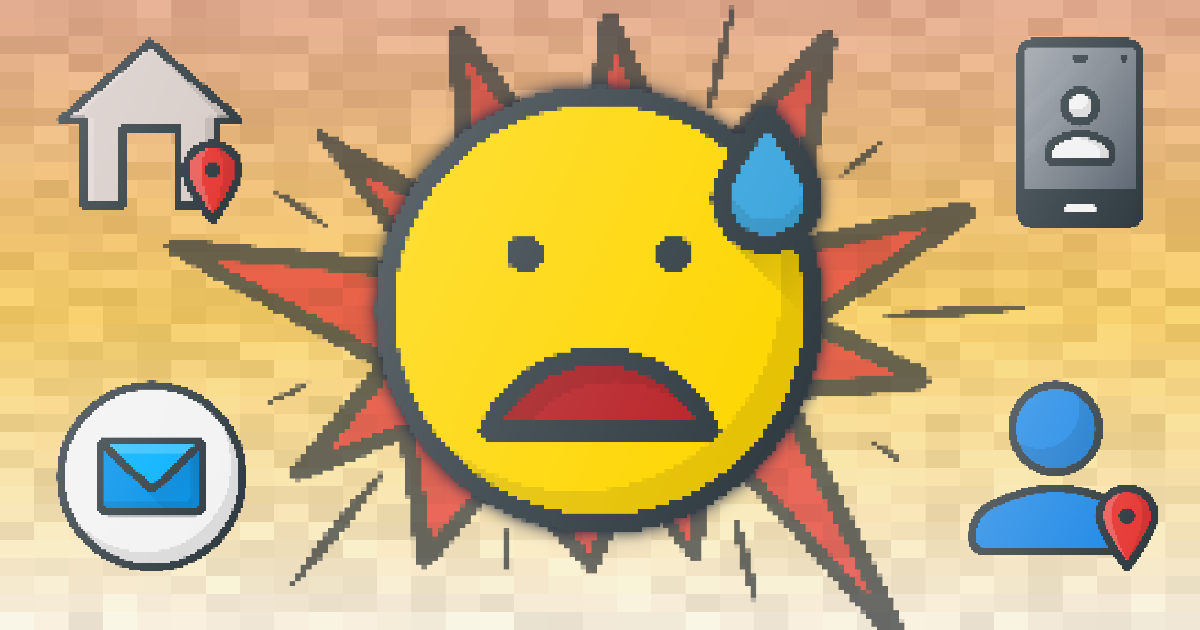Even though I write this newsletter, and live, breathe, and sip cybersecurity most days, sometimes I forget just how strange it can get out there. Things can go from “just fine” to “what the heck?” in the space of a comment thread.
Yesterday, someone threatened to dox me.
If you’re unfamiliar, doxxing is when someone exposes another person’s private information online — like a home address, phone number, or even car details — to intimidate or harm them. It’s not just rude; it’s a crime (with varying degrees of seriousness depending on where you live).
The funny part? This whole thing started because someone asked for advice about home surveillance cameras. You know how I feel about surveillance and IoT. It’s complicated, to say the least. But I answered politely. Then, as they say on the interwebs: that escalated quickly.

Within two sentences, a stranger in a group of 24,000 people went from zero to “I could find your address.” Friends, I have never interacted with this person in my life.
Let’s Break It Down
There was so much wrong with that exchange that I had to unpack it a little.
Being on Facebook (or any platform) doesn’t mean you have no privacy. It means you have intentional privacy.
Just because I’m online doesn’t mean my data is everywhere.
Just because I’m on Facebook doesn’t mean I know nothing about privacy.
Even though this person threatened to weaponize my information, I’m redacting their name and photo. Because I will not violate someone else’s privacy just to prove a point.
They’ve already given up on privacy — but you don’t have to. There are tools that help you choose the level of visibility you’re comfortable with.
Online privacy and offline safety are not the same thing, and both matter.
Threatening people online is poor form. You post that from the same phone your kids call you on?
Having a Plan
Anyone who spends time online should have a checklist ready for what to do if they’re ever doxxed (or even threatened). When something like this happens, your adrenaline spikes and rational thought takes a coffee break. The key is to think it through before you need it.
Keep your plan somewhere safe, ideally inside your password manager, so you can access it quickly if you need to lock things down.
Your Doxx Response Checklist
Accounts to secure: List every account that would need to be locked down or temporarily disabled.
Incident log: Track where the threats happened and in what order. Patterns help you figure out who’s involved (or at least where the idea started).
Evidence folder: Keep screenshots, timestamps, usernames, and URLs. You’ll need this if things escalate.
Takedown tracking: Note where you’ve filed removal requests for false or harmful content.
Reporting: Document when and where you reported threats to moderators, platforms, or law enforcement.
What I Did
Because this happened on Facebook, my first move was simple: block ‘em.
Then I searched the person’s name on every platform we might share and blocked them there, too. I also took screenshots: one of the threat itself, and one of my chat with the moderators (timestamped). The group’s mod team took it seriously, reviewed the thread, and banned the user. Ten points to digital decency.
Once the shock wore off, I realized I was mostly… okay.
Not happy about it, but steady. I’ve spent years tightening my digital privacy — minimizing my data footprint, removing myself from data brokers, securing my accounts. That groundwork meant I didn’t have to panic. My systems worked.
And honestly? That’s the real win. Knowing that even if someone wanted to find me, it would be a whole lot of work.
The Takeaway
That peace of mind — the kind you can feel in your shoulders — is worth every reminder, every privacy setting, every app subscription that helps you stay secure.
We can’t control the weirdness of the internet, but we can control how exposed we are when it gets weird.
Join us for tea!
CybersecuriTea is a free, plain-English guide to digital safety, designed for families, friends, and the folks you love. Subscribe today and get weekly tips to help keep your digital life secure.
Or, if you’d like to support our work and keep the kettle warm for everyone:
Issue # 19
This content may contain affiliate links. If you choose to sign up or make a purchase through them, we may earn a small commission, at no additional cost to you. Thank you for supporting CybersecuriTea.




